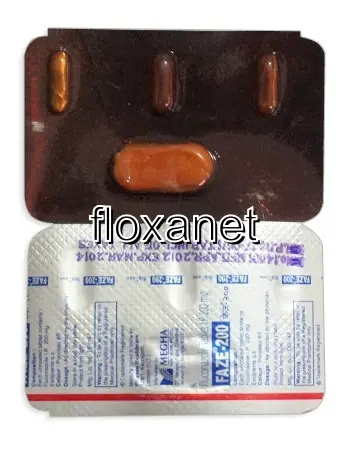| Package | Dosage | Price | Price per Dose | |
|---|---|---|---|---|
| Dosage: 50mg | ||||
| 180 pill | 50mg | $297.02 | $1.65 | |
| 120 pill | 50mg | $208.19 | $1.74 | |
| 90 pill | 50mg | $173.49 | $1.93 | |
| 60 pill | 50mg | $122.13 | $2.03 | |
| 30 pill | 50mg | $74.94 | $2.48 | |
| 10 pill | 50mg | $29.13 | $2.91 | |
| Dosage: 100mg | ||||
| 180 pill | 100mg | $531.59 | $2.96 | |
| 120 pill | 100mg | $358.09 | $2.98 | |
| 90 pill | 100mg | $281.75 | $3.14 | |
| 60 pill | 100mg | $223.45 | $3.72 | |
| 30 pill | 100mg | $116.58 | $3.89 | |
| 10 pill | 100mg | $44.40 | $4.44 | |
| Dosage: 150mg | ||||
| 180 pill | 150mg | $464.97 | $2.58 | |
| 120 pill | 150mg | $326.17 | $2.72 | |
| 90 pill | 150mg | $265.09 | $2.94 | |
| 60 pill | 150mg | $194.31 | $3.25 | |
| 30 pill | 150mg | $111.03 | $3.69 | |
| 20 pill | 150mg | $77.71 | $3.91 | |
| 10 pill | 150mg | $41.63 | $4.18 | |
| Dosage: 200mg | ||||
| 180 pill | 200mg | $678.72 | $3.78 | |
| 120 pill | 200mg | $476.07 | $3.97 | |
| 90 pill | 200mg | $396.95 | $4.41 | |
| 60 pill | 200mg | $280.36 | $4.66 | |
| 30 pill | 200mg | $173.49 | $5.76 | |
| 10 pill | 200mg | $62.45 | $6.25 | |

Fluconazole Description
Overview of Fluconazole
Fluconazole is a widely used antifungal medication that belongs to the triazole class of drugs. It is prescribed to treat a range of fungal infections, including thrush, yeast infections, and more serious systemic fungal conditions. Its effectiveness stems from its ability to inhibit an enzyme essential for the production of ergosterol, a key component of fungal cell membranes. By disrupting cell membrane synthesis, Fluconazole effectively kills or inhibits the growth of fungi, making it a vital tool in antifungal therapy.
Uses and Indications
This medication is commonly prescribed for treating or preventing fungal infections such as oropharyngeal and esophageal candidiasis, vaginal yeast infections, and systemic infections like cryptococcal meningitis. It is also used in patients with compromised immune systems, such as those undergoing chemotherapy or organ transplantation. Fluconazole is favored because of its broad spectrum of activity and the convenience of once-daily dosing, which improves patient compliance.
How It Works
Fluconazole functions by selectively inhibiting the fungal cytochrome P450 enzyme 14α-demethylase. This inhibition hinders the conversion of lanosterol to ergosterol, an essential component of fungal cell membranes. Without ergosterol, fungal cells become more permeable and dysfunctional, ultimately leading to cell death. This mechanism makes Fluconazole highly effective against many common pathogenic fungi, including Candida species and Cryptococcus neoformans.
Dosage and Administration
The dosage of Fluconazole varies depending on the infection type and severity. Typically, it is administered orally in the form of tablets or suspension. For uncomplicated yeast infections, a single dose may be sufficient, while more serious infections require longer courses. It is important to follow the healthcare provider’s instructions carefully and complete the prescribed course to prevent recurrence or resistance. Patients should take the medication with or without food, as directed, and maintain proper hydration during treatment.
Potential Side Effects and Precautions
While Fluconazole is generally well-tolerated, some patients may experience side effects. Common ones include headache, nausea, stomach discomfort, and dizziness. More rarely, allergic reactions such as rash or swelling may occur. Liver toxicity is a concern, especially in patients with pre-existing liver conditions or those taking other hepatotoxic drugs. Regular monitoring of liver function may be recommended during prolonged treatment. Patients should inform their healthcare provider of any unusual symptoms or side effects.
Interactions and Contraindications
Fluconazole can interact with numerous medications, including warfarin, certain anticonvulsants, and other drugs metabolized by the liver. These interactions may alter drug levels and increase the risk of adverse effects. It is crucial to disclose all medications to the healthcare provider before starting Fluconazole. Patients with known hypersensitivity to azole antifungals or those with severe liver disease should avoid using this medication unless explicitly advised by a healthcare professional.
Conclusion
Fluconazole remains a cornerstone in antifungal therapy due to its efficacy, convenient dosing, and safety profile when used appropriately. It effectively treats a variety of fungal infections, significantly improving patient outcomes. However, proper medical guidance is essential to minimize risks and ensure optimal treatment success. Patients should adhere strictly to prescribed instructions and report any adverse reactions promptly to their healthcare provider.
